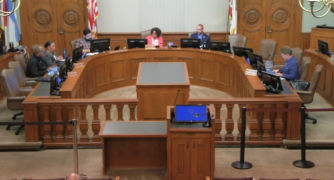
Pasadena Water and Power (PWP) is exploring options to prioritize seniors and residents with life-saving medical devices for early access to new smart meters. This initiative is part of the city’s ambitious Advanced Meter Infrastructure (AMI) project, set to launch in the coming months.
Jeremy Marquette, PWP’s assistant general manager for customer service and technology, presented the update to the Municipal Services Committee on Tuesday, July 23. The project, which will take approximately four years to complete, involves replacing or retrofitting every electric and water meter in the city.
“We are going to touch every home and business within the city,” Marquette explained. “We are going to have to replace every electric meter and or replace or retrofit every water meter.”
The new AMI system will provide real-time, two-way communication with meters, offering significant customer service benefits. Residents will have access to usage data every 15 minutes for both water and electricity, enabling better conservation efforts and potentially lower bills.
Councilmember Tyron Hampton raised the question of prioritization during the committee meeting.
“Based on your presentation, it seems like the priority should number one, go to those that have lifesaving devices in their home so that we know if their power’s gone out,” Hampton suggested.
The initial rollout is expected to include about 1,000 devices each for water and power, spread throughout the city.
PWP is considering various technologies for the AMI system, including fixed radio and cellular networks. The project aims to help PWP achieve its carbon-free energy goals by 2030 by allowing for more efficient power grid management and better integration of renewable energy sources.
In a separate meeting with MASH (Maintenance Assistance and Services to Homeowners) program coordinators, PWP representatives reportedly discussed plans to hire at least 10 MASH employees to assist with meter deployment, creating local job opportunities.
The AMI project follows PWP’s implementation of a new Customer Information System on April 4, 2022, which laid the foundation for the smart meter rollout.
The utility said it has seen an 80% adoption rate of its new customer portal and plans to launch a mobile application in the fall of 2024.
Marquette acknowledged that PWP is behind neighboring utilities in implementing AMI but noted this delay could result in acquiring more advanced technology. As the project moves forward, PWP will continue to refine its deployment strategy and budget.
The timeline presented indicates that mass meter deployment is expected to begin in late 2025 or early 2026, with the entire process taking about 18 months to complete.














 2 comments
2 comments



